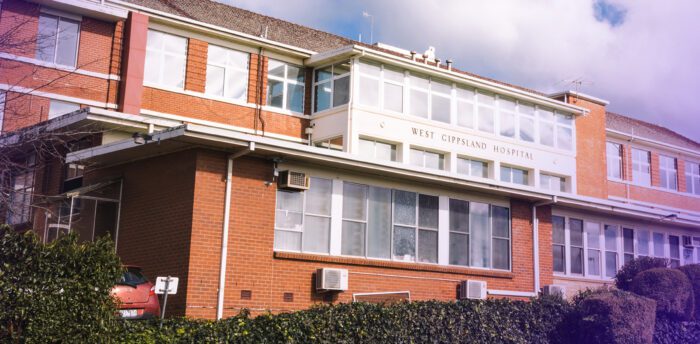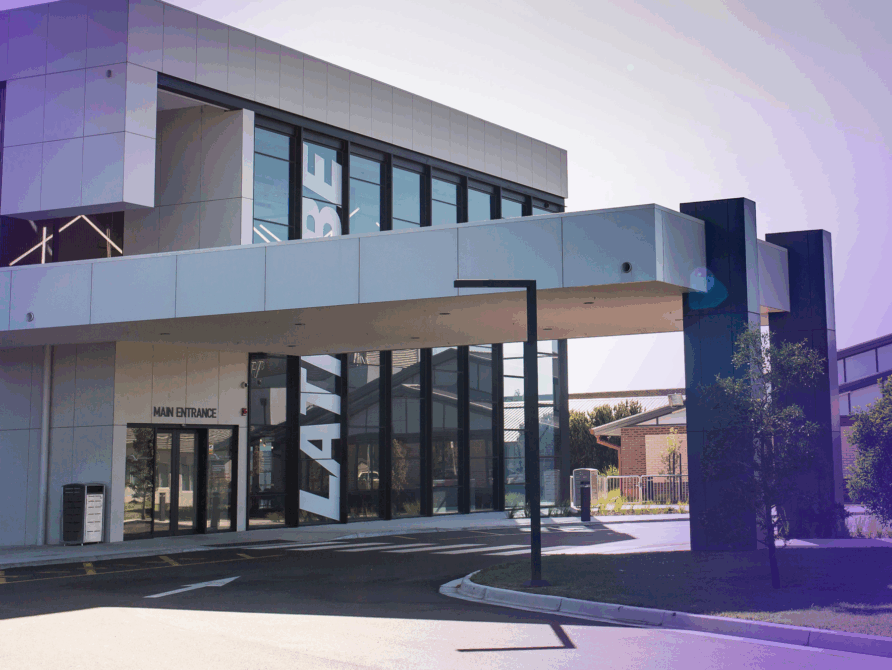INSIGHTS
In November 2024, Worcestershire Acute Hospitals NHS Trust (WAHT) took a significant step forward in its digital transformation journey by extending Altera’s Sunrise™ Electronic Patient Record (EPR) system into its two Emergency Departments (ED) and across four Minor Injury Units, Same-Day Emergency Care and Single Point of Access services. This go-live built on the successful rollout across fifty-one adult inpatient areas.
Bringing Sunrise EPR into the Emergency Departments and minor injury units was a crucial development to provide safer, responsive and more efficient care, by providing their clinicians with all the information they need, at all times in a single patient record while further embedding digital innovation at the heart of urgent and unplanned care.
Facilitates real-time access to patient data from any computer across the trust by a health care professional.
Promotes safety enhancements and improved patient experience through supporting responsive referrals and treatments.
Reliance on paper
Prior to implementation, patient care in the ED relied heavily on paper-based health records systems. This presented significant challenges:
- Potential delays in care delivery due to misplaced or incomplete records.
- Lack of real-time visibility across clinical teams, especially during handovers to acute units presenting a risk of delays in patient diagnosis or care, hinder communications and collaboration amongst health care professionals
- Safety risks arising from inconsistent documentation and lack of standardised processes.
The trust recognised that to meet modern patient demands and ensure high-quality emergency care, a robust, electronic solution was essential.
Meeting the needs of patients and communities
Digital transformation is central to the overall clinical strategy of WAHT. No matter the role a colleague plays in delivering care, enabling care to be enhanced through digital functionality is a key driver. Sunrise EPR plays a crucial role, ensuring patient information is available electronically, anytime and anywhere, transforming how the trust admits, treats and discharges patients, enabling significant improvements in patient care and operational performance.
A phased approach to EPR deployment
The trust is taking a clinically led, phased approach to its implementation of Altera’s EPR, enabling it to make incremental changes as they go, which has been critical to its success. Jackie Edwards, Chief Digital Clinical Engagement Officer at the trust, shared:
“The modular approach provided by Altera was one of the main benefits it offered, which made it a good choice for Worcestershire. Then, thinking about the culture of the organisation and the transformational journey we knew it would take us through, it was important for us to make sure that all staff had the opportunity to be involved and have a voice into the system along the way – supporting changing in new ways of working is always one of the most complex components in any deployment.”
The ED rollout was carefully planned and executed, with key elements including:
- A cut-over strategy where all new patients from 10 a.m. on go-live day were entered directly into the EPR.
- Onsite training rooms located in ED to provide real-time support.
- A strong focus on clinical engagement, ensuring the system was aligned with frontline needs.
The digital transformation continues to drive lasting improvements in the way the trust delivers care, placing patients at the centre of a smarter, more connected future.
“Digital transformation is at the heart of our mission to deliver safer, faster and more connected emergency care. Expanding Sunrise EPR into our Emergency Departments empowers clinicians with real-time patient insights, bridging gaps between teams and embedding innovation at the core of urgent care delivery. The trust is now working to ensure that operational processes and workforce configuration improves and transforms alongside the new digital system,”
Rebecca Brown
CDIO, Worcestershire Acute Hospitals NHS Trust
Clinical engagement at the core
A key success factor was the involvement of experienced clinicians and clinical leaders. Marc Tarrant, a former ED matron who has since become a digital lead nurse for the trust, commented: “We need clinicians to be able to describe the system, how we build it, what it looks like and how we’re going to interact with it on the shop floor. That insight shaped our deployment and design decisions in a meaningful way.”
Bringing clinicians into the digital project team helped bridge cultural gaps between technical and frontline staff, ensuring the system was both functional and intuitive in a high-pressure environment like ED.
Outcomes and benefits
Having a system in the ED at the point of admission, containing all patient information, condition insights, latest observations and test results, enables the acute medical unit to provide safer and more efficient care, according to Marc. “Too often I’ve heard stories where, without that information, patients on the acute medical unit on occasions ran the risk that they would not get assessed in a timely manner and therefore a concern that they could have a risk harm,” he added.
The implementation of Sunrise EPR has already delivered measurable improvements in emergency care:
- Real-time access to patient data, from initial triage to inpatient handover, ensuring continuity of care.
- Improved patient flow, with digital referrals and documentation enhancing coordination across teams.
- Safety enhancements, including tracking boards and automated alerts for clinical deterioration.
- Faster treatment and diagnostics, thanks to centralised visibility of notes, test results and observations and timely referrals to specialities.
- Operational efficiency, with reduced time spent searching for physical notes or duplicating assessments.
“You’re able to start investigations and treatment much earlier. CT results and assessments are visible instantly, and this has had a huge positive impact on patient care,” Marc said.
“Collaborating with Altera Digital Health has been instrumental in driving forward our digital vision. Their expertise and innovative approach have ensured that Sunrise EPR seamlessly integrates into our Emergency Departments, supporting our teams to deliver exceptional patient care and boost outcomes,” Jackie said.
Lessons learned
- Phased rollout works: Beginning with inpatient areas enabled the team to refine deployment strategies before launching in the ED.
- Clinician involvement is vital: Embedding clinical leaders into digital programmes builds trust, relevance and adoption.
- Adaptability is key: The configurability of the Sunrise system allowed it to be tailored to specific workflows within the ED.
“These are complex environments. We learned early on that while a project-managed approach is important, the digital teams understanding the dynamics and pace of emergency care was critical to success.”
Jackie Edwards
Chief Clinical Digital Engagement Officer
Next steps
The trust is now preparing for further phases, including:
- Electronic Prescribing and Medicines Administration (EPMA) rollout later in 2025.
- Electronic bed management and order comms, seen as future game-changers in patient safety and flow.
- Expanded training and engagement, especially focused on maximising the EPR’s rich functionality in real-time decision-making.
Worcestershire Acute Hospitals NHS Trust’s deployment of Sunrise EPR in its Emergency Departments is an example of how digital transformation, when clinician-led and operationally supported, can deliver tangible improvements to emergency and unplanned care. With real-time data access, enhanced patient safety and better clinical coordination, the trust is on its way to achieving its digital maturity goals.
To learn more about Altera’s Sunrise EPR, please click here.
About the Client:
Worcestershire Acute Hospitals NHS Trust
Worcestershire Acute Hospitals NHS Trust provides hospital-based services from three main sites: the Alexandra Hospital, Kidderminster Hospital and Treatment Centre, and Worcestershire Royal Hospital. In 2021–22, these organisations provided care to more than 250,000 patients—equal to 40% of Worcestershire’s population.
The trust, which was categorised as “Group 0” under the frontline digitisation programme, has embarked on its digital transformation journey through the implementation of Altera Digital Health’s Sunrise electronic patient record (EPR) system in March 2023. Now live across all 56 inpatient wards, the ambitious project saw the trust quickly accelerate its digital maturity, developing a highly configured system that is bespoke to the trust’s needs, without needing national funding.
Related Insights
Article
Article
Does your EHR truly support behavioral health providers?
Dr. Mark Pratt
Client Story
On the way to the peak: Scaling technology at Wyckoff Heights Medical Center
Wyckoff Heights Medical Center
Article
Keeping staffing front and center
Jeanne Armstrong, M.D.
Article
Article
Reclaiming medicine’s human element with ambient listening
Crystal Reznack
Article
Article
Three takes on transforming hospital admin with tech
Lindsey Honig
Client Story
Contemporary digital healthcare solution delivered to West Gippsland Healthcare Group
West Gippsland Healthcare Group
Client Story
Client Story
Scanning and document management capabilities in Sunrise™ complement the digitised EMR in Gippsland
Gippsland Health Alliance











